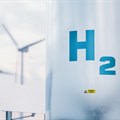Southern Africa in prime position to become major green hydrogen exporter

“There are enormous opportunities for Africa to be a key player in the clean hydrogen value chain,” says Feris. “In fact, several regions have the potential to develop into major global export hubs for hydrogen and other areas with the potential to provide domestic demand for end-use applications of hydrogen.”
From a Southern African perspective, he says this region has favourable solar conditions for the production of green hydrogen, with countries like Namibia and South Africa being ideally situated to become export hubs for green hydrogen.
“This is why it is critical that South Africa and Namibia push to become one of the first movers in this market,” says Feris. “There are already a number of international jurisdictions like South America and Australia who are already in a good position to do the same.”
Securing policy, regulatory frameworks
Feris says South Africa needs to expedite the process in order to secure the demand, which begins with securing policy and regulatory frameworks that are attractive to investors but also balance the current and future needs of the country.
Feris points to Spain as a perfect example of why policies and regulations are so important. In 2006, the Spanish government implemented a programme called “The sun can be yours” in which it encouraged small-time investors to buy into solar farms throughout Spain. While this was successful for some time, the policy was not robust enough and the Spanish government ended up reducing its subsidies, which become a red flag for investors who in turn made claims against the government.
“We cannot develop this new market into new economic territory without due consideration for the economic needs and restrictions of our national goals and priorities. The system needs to be sustainable from the word go.”
Hydrogen is going to affect the entire global economy. The competitive advantage of Namibia is that there is more land and fewer people, so the natural move would be to become an export market.
Looking at the global commitments in terms of COP26, there will be a bigger push for hydrogen, and Africa most definitely has a role to play in this. If Africa collaborates to create this industry across jurisdictions for African growth, we can attract investment while decarbonising the global economy, says Feris.
Collective effort needed
Is it realistic for South Africa to do this? Director at CDH Margo-Ann Werner says in terms of exporting hydrogen, this would have to be a collective effort by the government and private sector, and Sasol has already taken the lead on hydrogen creation. If we want investors to invigorate growth in this market, it all hinges on creating an enabling policy framework. In a South African context, we do have a few gears that will enable a hydrogen economy.
The country is already the world’s largest producer of platinum group metals (PGM), which are one of the main ingredients in the production of green hydrogen, and is also well endowed with available land and renewable resources to provide the energy sources for green hydrogen production.
Existing local infrastructure will allow for the production of blue, grey, black, and brown hydrogen, with the possibility of pink hydrogen arising. This puts South Africa in a unique position to gain a competitive advantage in harnessing hydrogen to create a whole new electricity market, which South Africa desperately needs.
“We are seeing drives in government that are specifically focused to push the infrastructure drive and secure the resources needed to facilitate security of supply, and conservation of water,” concludes Werner. “It’s not going to be an easy road. It is going to be complex and dynamic with a lot of moving parts across private and public sectors. We still need more clarity, more security, and more commitment, but it will be worth it.”














